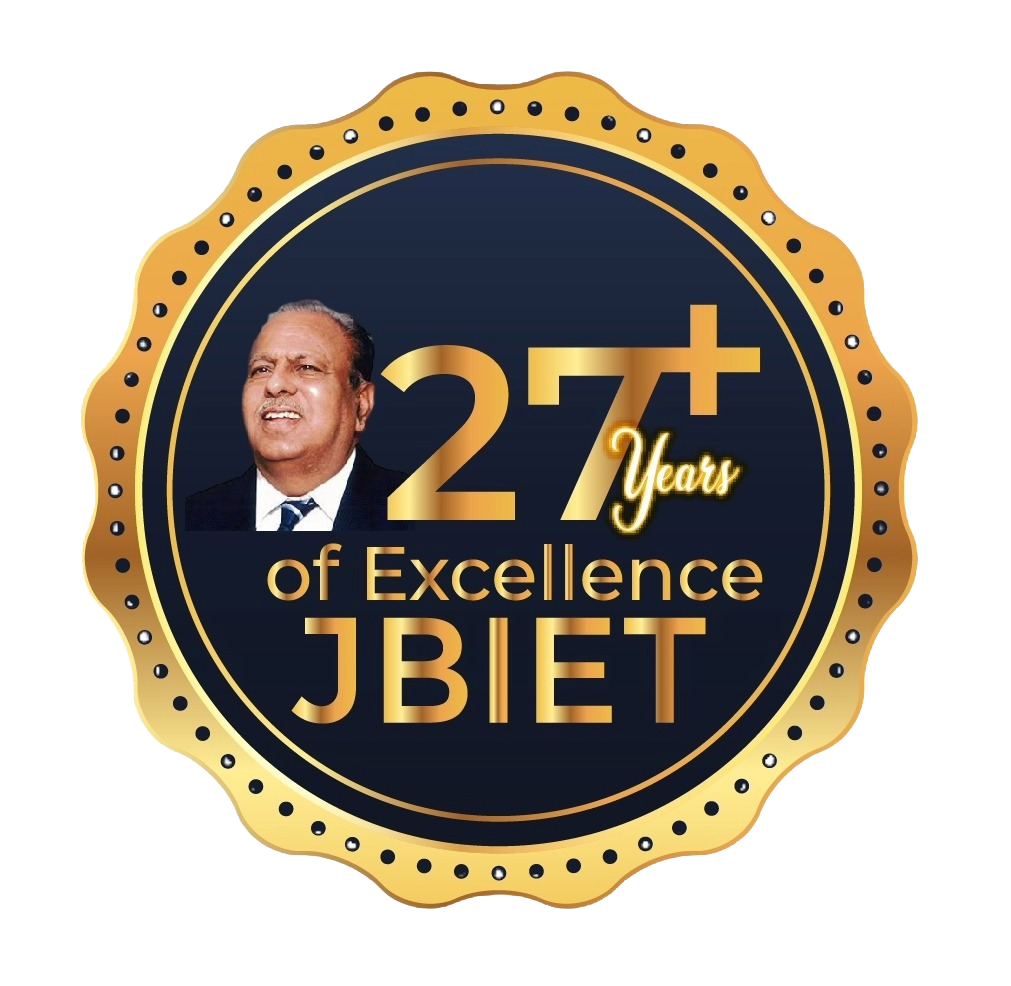Artificial Intelligence (AI) is a computing concept that enables a machine to think and solve complex problems as we humans do with our natural intelligence. AI is the next phase of the industrial revolution and has established itself firmly in our society. Almost all branches of industry have been affected by the ongoing transformation through its algorithms.
Machine Learning explores the analysis and construction of algorithms that can learn from and make predictions on data. ML has proven valuable because it can solve problems at a speed and scale that cannot be duplicated by the human mind alone. With massive amounts of computational ability behind a single task or multiple specific tasks, machines can be trained to identify patterns in and relationships between input data and automate routine processes.
The CSE(AI & ML) has opened up exciting new opportunities for interdisciplinary work across many fields including computer science, mathematics, statistics, and information science from which it draws foundational knowledge and the current demand for a career in CSE(AI & ML) is considerable and growing daily.
The B.Tech CSE(Artificial Intelligence and Machine Learning) course addresses this transformation by providing you as a student with the broad and in-depth skills required to work with and develop AI. You will be trained how to obtain, process and store enormous amounts of data, which is the root of AI and development processes.
VISION:
To become a Centre of Excellence in Core Computer Science centred AI&ML, shaping professionals obliging to the research and proficient needs of national and international organizations and to bring up innovative ideas to solve real time problems through continuous research, innovation, and industry steered curriculum.
MISSION:
M1: To impart premier quality, skill-based and value-based education to the students in the field of Artificial Intelligence and Machine Learning with Core Computer Science standards.
M2: To identify corporate requirements and enrich the students’ expertise with a strong theoretical and practical backdrop having an emphasis on hardware and software development with social ethics.
M3: To transform the students into technically skilled and help them to fascinate the pioneering spirit.
Program Educational Objectives (PEOs)
PEO1
To Formulate, analyse and solve Engineering problems with strong foundation in Mathematical, Scientific, Engineering fundamentals and modern AI&ML practices through advanced curriculum.
PEO2
Analyze the requirements, realize the technical specification and design the Engineering solutions by applying artificial intelligence and machine learning theory and principles.
PEO3
Demonstrate technical skills, competency in AI&ML and promote collaborative learning and team work spirit through multi-disciplinary projects and diverse professional activities along with imbibing soft skills and ethics.
Program Outcomes and Program Specific Outcomes of CSE(AI&ML) Department (POs & PSOs)
PO1: Engineering Knowledge: Apply the knowledge of mathematics, science, engineering fundamentals and an engineering specialization to the solution of complex engineering problems.
PO2: Problem Analysis: Identify, formulate, research literature and analyse complex engineering problems reaching substantiated conclusions using first principles of mathematics, natural sciences and engineering sciences.
PO3: Design / Development of Solutions: Design solutions for complex engineering problems and design system components or processes that meet specified needs with appropriate consideration for public health and safety, cultural, societal, and environmental considerations.
PO4: Conduct investigations of complex problems: using research-based knowledge and research methods including design of experiments, analysis and interpretation of data and synthesis of information to provide valid conclusions.
PO5: Modern Tool Usage: Create, select, and apply appropriate techniques, resources and modern engineering and IT tools including prediction and modeling to complex engineering activities with an understanding of the limitations.
PO6: The Engineer and Society: Apply reasoning informed by contextual knowledge to assess societal, health, safety, legal and cultural issues and the consequent responsibilities relevant to professional engineering practice.
PO7: Environment and Sustainability: Understand the impact of professional engineering solutions in societal and environmental contexts and demonstrate knowledge of and need for sustainable development.
PO8: Ethics: Apply ethical principles and commit to professional ethics and responsibilities and norms of engineering practice.
PO9: Individual and Teamwork: Function effectively as an individual, and as a member or leader in diverse teams and in multi-disciplinary settings.
PO10: Communication: Communicate effectively on complex engineering activities with the engineering community and with society at large, such as being able to comprehend and write effective reports and design documentation, make effective presentations, and give and receive clear instructions.
PO11: Project Management and Finance: Demonstrate knowledge and understanding of engineering and management principles and apply these to one’s own work, as a member and leader in a team, to manage projects and in multidisciplinary environments.
PO12: Life-long Learning: Recognize the need for and have the preparation and ability to engage in independent and life- long learning in the broadest context of technological change. Any signatory needs to provide an overview of its learning outcomes and confirm that compliance of programs.
PSO1
The ability to understand, analyse and demonstrate the knowledge of human cognition, Artificial Intelligence, Machine Learning and data science in terms of real world problems to meet the challenges of the future.
PSO2
The ability to develop computational knowledge and project development skills using innovative tools and techniques to solve problems in the areas related to Deep Learning, Machine learning, Artificial Intelligence.





